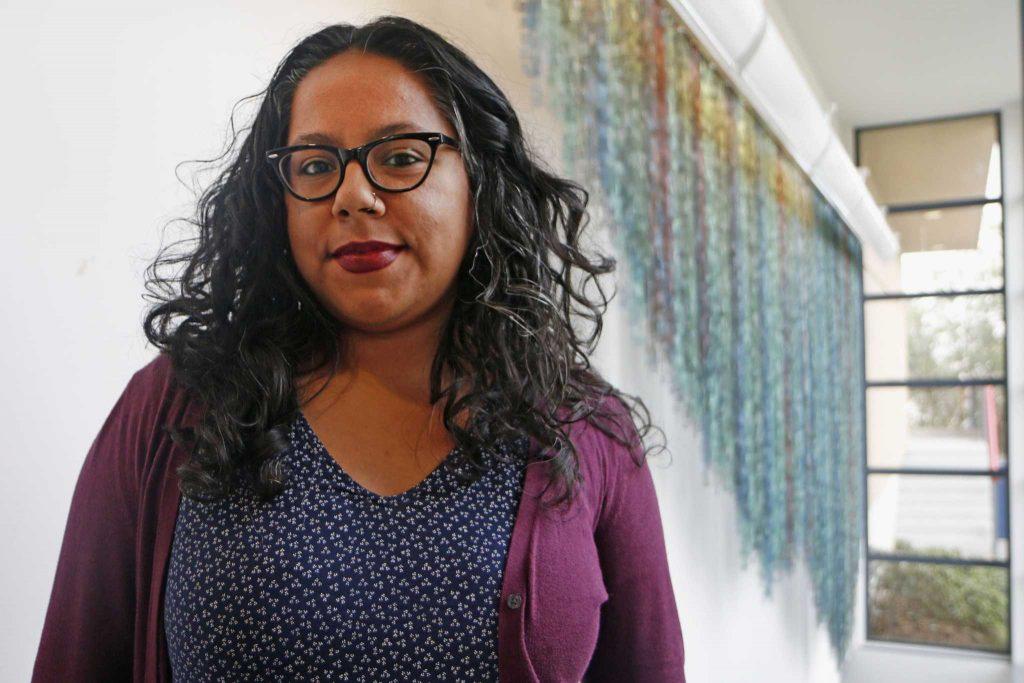Graduate student and teaching assistant at the School of Cinema, Candy Guinea, received the prestigious 2016 Princess Grace Award for her films that provide commentary on social justice.
The Princess Grace Award honors emerging talent in theater, dance and film by awarding recipients with grants in forms of scholarships, apprenticeships and fellowships.
Guinea tells stories through documentary style filmmaking, hoping to give a personal perspective on what it’s like to be queer, a person of color, a woman and a first generation citizen.
“Candy is a talented filmmaker, whose work impressed our panel of experts because of her authentic voice and her lens into this underrepresented community,” said Toby E. Boshak, executive director of the Princess Grace Foundation.
After completing her undergraduate degree, Guinea explored careers in social work and nonprofits, which led to her involvement with The Queer Women of Color and Media Arts Project. She took an introductory filmmaking course with the organization which sparked her interest to pursue a career in cinema.
“In terms of mainstream media and representation in film, there is not that many experiences or stories about queer people telling their own stories,” Guinea said.
Guinea’s piece, “Mariposa,” her thesis film, follows the journey of her and her partner attempting to get pregnant, from a unique point of view.
“I wanted to document her pregnancy because she’s masculine presenting, identifies as butch, and she had a lot of fear and anxiety about what being pregnant looks like while being masculine because there aren’t many examples of that,” said Guinea.
Guinea was nominated by a faculty panel at SF State who chose one graduate and one undergraduate student they believed deserved the Princess Grace Award.
Johnny Symons, a professor at the School of Cinema, believes Guinea has made wonderful contributions to the MFA program.
“Her dynamism is evident in her coursework as well as her filmmaking, and her commitment to sharing stories about the queer experience in the Latino community is compelling and inspirational,” Symons said.
Guinea explored ways that she could make a difference in her communities through different career paths, such as being a lawyer, a teacher or getting involved in public policy. She ultimately found film was the best way she could make a change.
“What drew me to film is that I saw that there is a lot of potential for making an impact in the way that my community is represented,” said Guinea. “Currently people that are immigrants, queer, people of color or women deal with stereotypes that are perpetuated through the media. I thought that making films that represent an authentic experience from those actual communities, I could somehow make an impact.”







